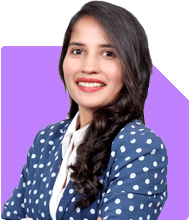Ramalingam Kalirajan |1428 Answers |Ask -Follow
Mutual Funds, Financial Planning Expert - Answered on Apr 23, 2024
He has an MBA in finance from the University of Madras and is a certified financial planner.
He is the director and chief financial planner at Holistic Investment, a Chennai-based firm that offers financial planning and wealth management advice.... more

I am 40/F. Earning 80k per month through a contract govt job which will complete by year end. I had savings to start my practice (dental) but my partner fell in losses and he asked for my clinic savings. We both understand it is my loan to him. He has still not stabilized and is dependent on me financially. I have a PPF maturing but my family dissuades me to use that. The only options are to clear licencing exams abroad or find a low paying private job in India. If I move out of India, our relationship will end. In that case, Should I do a paper work for the funds (40 lakhs) I have given to my partner? Should I stay on a private job and keep supporting him? I really don't know what to do ahead. Please guide.
Documentation: Given that the funds given to your partner were meant for your clinic, it's essential to have proper documentation in place. This not only safeguards your interests but also clarifies the terms of the loan. Consult a legal advisor to formalize this arrangement if it hasn't been done already.
Communication: Open and honest communication with your partner is key. Discuss your concerns, expectations, and the financial situation. Understand his plans and timeframe for stabilizing the business and repaying the loan.
Financial Independence: Evaluate your options for financial independence. If you choose to continue supporting him financially through a low-paying job, consider the impact on your financial goals and mental well-being. Alternatively, exploring opportunities abroad can offer financial independence and professional growth but weigh the potential strain on your relationship.
Emotional Well-being: Consider seeking counseling or therapy to navigate the emotional complexities of your situation. Professional guidance can provide clarity and help you make informed decisions without compromising your emotional health.
Future Planning: Assess your financial situation, including the PPF maturing and any other assets. Develop a financial plan considering your career options, loan to your partner, and long-term goals. Consult a financial advisor to tailor a plan that aligns with your objectives and risk tolerance.
Remember, it's essential to prioritize your well-being and future stability. Making informed decisions, seeking professional guidance, and communicating openly with your partner can help navigate this challenging situation effectively.
You may like to see similar questions and answers below
Sanjeev Govila |458 Answers |Ask -Follow
Financial Planner - Answered on Nov 25, 2023
Kanchan Rai |183 Answers |Ask -Follow
Relationships Expert, Mind Coach - Answered on Mar 21, 2024
Shalini Singh |64 Answers |Ask -Follow
Dating Coach - Answered on Apr 19, 2024
Ramalingam Kalirajan |1428 Answers |Ask -Follow
Mutual Funds, Financial Planning Expert - Answered on May 06, 2024
Ramalingam Kalirajan |1428 Answers |Ask -Follow
Mutual Funds, Financial Planning Expert - Answered on May 06, 2024
Shreya Shah |78 Answers |Ask -Follow
Nutritionist, Diabetes Educator - Answered on May 06, 2024
Ramalingam Kalirajan |1428 Answers |Ask -Follow
Mutual Funds, Financial Planning Expert - Answered on May 06, 2024
Ramalingam Kalirajan |1428 Answers |Ask -Follow
Mutual Funds, Financial Planning Expert - Answered on May 06, 2024
Ramalingam Kalirajan |1428 Answers |Ask -Follow
Mutual Funds, Financial Planning Expert - Answered on May 06, 2024
Ramalingam Kalirajan |1428 Answers |Ask -Follow
Mutual Funds, Financial Planning Expert - Answered on May 06, 2024
Ramalingam Kalirajan |1428 Answers |Ask -Follow
Mutual Funds, Financial Planning Expert - Answered on May 06, 2024
Ramalingam Kalirajan |1428 Answers |Ask -Follow
Mutual Funds, Financial Planning Expert - Answered on May 06, 2024
Ramalingam Kalirajan |1428 Answers |Ask -Follow
Mutual Funds, Financial Planning Expert - Answered on May 06, 2024
























